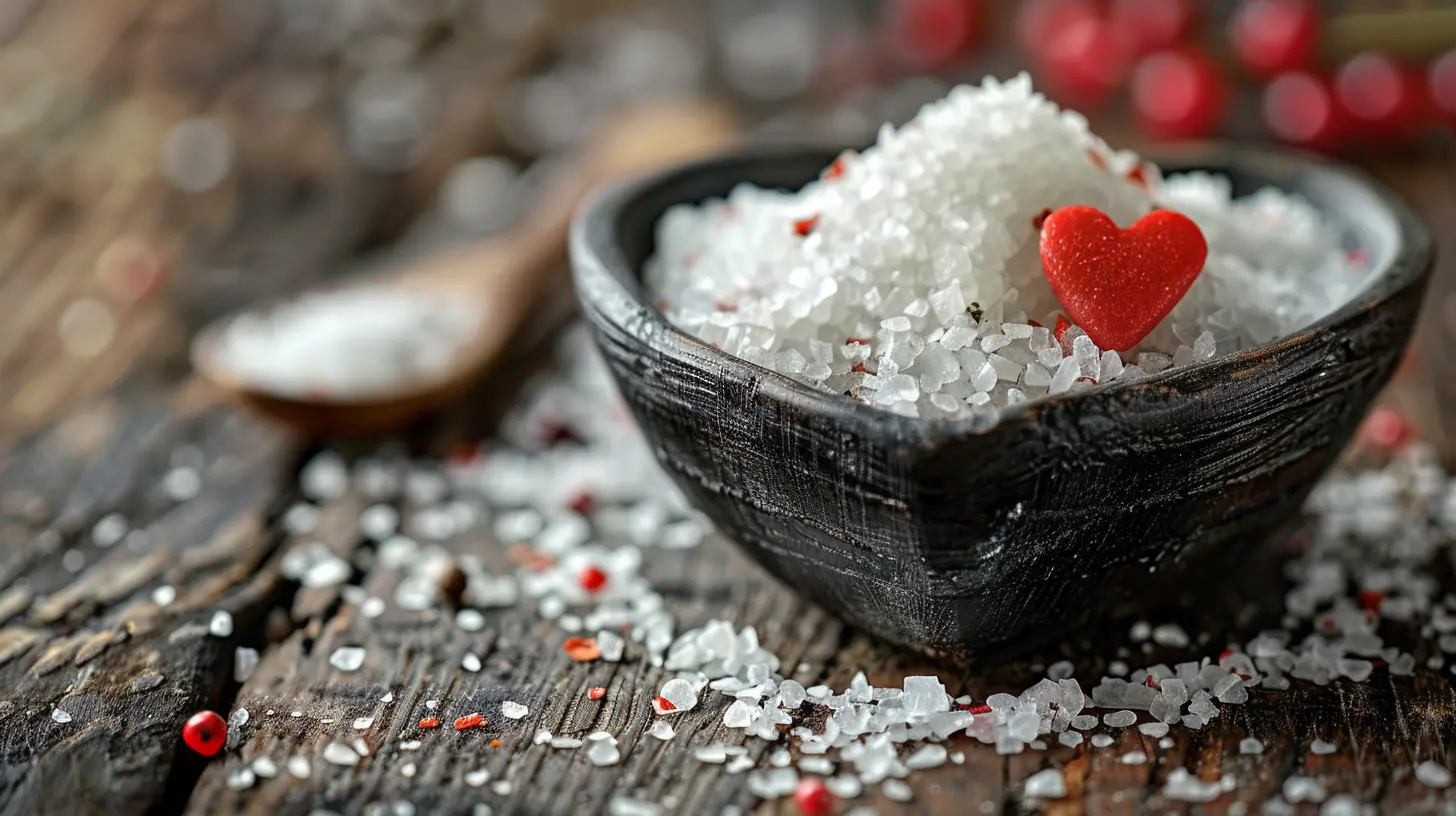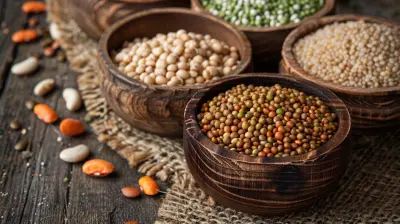2 March 2025
We hear about sodium all the time, don’t we? It’s the stuff in salty snacks that makes chips taste irresistible, and hey, without it, what would popcorn even be? But beyond its role in making food delicious, sodium has a bit of a reputation. It’s often blamed for high blood pressure, heart disease, and pretty much any health woe you can imagine. But is sodium really the villain it’s made out to be? Or is it just misunderstood? Let’s dig into the truth about sodium and how it affects your heart—because, believe me, it’s not as black and white as you might think.
What Is Sodium, Anyway?
Let’s start with the basics. Sodium is a mineral found in nature and in your body. It’s an essential electrolyte, and it plays a pretty important role in keeping you alive. Sodium helps control fluid balance, supports nerve function, and ensures your muscles (including your heart!) contract properly. Sounds like a hero, right?But here’s the catch: It’s all about balance. Too much sodium can wreak havoc on your body, and when we’re talking about your heart, that’s where things get serious. 
Sodium and Your Heart: What’s the Connection?
Okay, so we know sodium is important, but how does it affect your heart? To put it simply: Sodium impacts blood pressure, and blood pressure impacts your heart. It’s kind of like a domino effect.When you eat a high-sodium diet, your body holds on to extra water to dilute all that sodium. This is your body’s way of trying to balance things out (go, body!). But here’s the not-so-good news: That extra water increases your blood volume, which in turn makes your heart work harder to pump blood. Over time, this added strain can lead to high blood pressure, also known as hypertension—a major risk factor for heart disease and stroke.
It’s essentially like trying to blow air into an already overinflated balloon. The more pressure you put on it, the more likely it is to pop—or in the case of your heart, lead to serious problems. 
The Salty Truth: How Much Sodium Is Too Much?
Here’s where things start to get tricky. The average person consumes way more sodium than they need. According to health guidelines, adults should keep their sodium intake below 2,300 milligrams (mg) per day—that’s roughly one teaspoon of salt. But most of us? We’re hitting closer to 3,400 mg daily. Yikes.And no, it’s not just because you went heavy-handed with the salt shaker. The real culprit? Processed and packaged foods. Everything from frozen dinners to deli meats and even your favorite condiments (hello, ketchup!) is loaded with sodium. It’s sneaky like that.
Can Too Little Sodium Be a Problem?
Here’s something you might not expect: Having too little sodium can also mess with your heart. That’s right—cutting out sodium entirely isn’t the answer either.If your sodium levels drop too low (a condition called hyponatremia), it can lead to issues like irregular heartbeats, fatigue, and even heart failure in severe cases. This is especially true for people who sweat a lot (looking at you, athletes) or take medications like diuretics.
Sodium, like most things in life, is about finding that sweet spot—not too much, not too little. Think of it like Goldilocks and her porridge. You want your sodium level to be “just right.”
Sneaky Sources of Sodium You Probably Didn’t Think About
If you’re trying to be mindful of your sodium intake, it’s not enough to just avoid sprinkling salt on your food. Sodium hides in some seriously surprising places. Here are a few culprits that might surprise you:1. Bread and Rolls – Yep, even your innocent slice of bread packs sodium.
2. Canned Soups – A small bowl can sometimes contain half your daily sodium limit.
3. Cheese – That ooey-gooey pizza topping? Sodium bomb.
4. Sauces and Condiments – Soy sauce, barbecue sauce, salad dressings—they’re all sodium-heavy.
5. Cereal – Believe it or not, even certain cereals contain a decent amount of sodium.
The takeaway? Always check nutrition labels. Sodium loves to fly under the radar.
Tips to Keep Your Sodium Intake in Check
Lowering sodium doesn’t mean you have to sacrifice flavor. Here are some simple tips to slash your sodium without feeling like you’re stuck eating bland, boring food:1. Cook at Home – When you cook your meals, you’re in control of how much sodium goes in.
2. Flavor With Herbs and Spices – Garlic, basil, lemon juice, and even a pinch of chili flakes can add excitement to your dishes without the extra sodium.
3. Choose Fresh Over Processed – Fresh fruits, vegetables, and meats naturally have less sodium than their processed counterparts.
4. Rinse Canned Foods – Rinsing canned beans or veggies can wash away some of the added salt.
5. Read Labels – Look for foods labeled “low sodium” or “no salt added.” Every small change helps!
What About Sea Salt or Himalayan Salt?
Ah, the fancy salts. You’ve probably seen fancy pink Himalayan salt or heard that sea salt is “healthier” than regular table salt. But here’s the thing: Salt is salt.While these types of salt may contain trace minerals, the sodium content is pretty much the same as regular table salt. So don't be fooled into thinking that sprinkling pink salt on your avocado toast makes it heart-healthy. Moderation is still key.
The Bigger Picture: Sodium’s Role in Your Overall Diet
Here’s the thing about sodium: It’s not the only player when it comes to heart health. Focusing solely on sodium without addressing other parts of your diet is like trying to fix a leaky roof by only patching one hole.A heart-healthy diet isn’t just about cutting back on salt. It’s about eating more whole, nutrient-rich foods like fruits, vegetables, whole grains, nuts, and lean proteins. These foods can help counteract sodium’s effects by providing potassium, a mineral that works like sodium’s sidekick to help maintain healthy blood pressure.
Think of potassium as the yin to sodium’s yang—they balance each other out. Foods like bananas, spinach, sweet potatoes, and avocados are potassium powerhouses that your heart will thank you for.
Wrapping It Up: What’s the Final Word on Sodium?
So, what’s the truth about sodium and its effects on your heart? Well, sodium itself isn’t evil—it’s a necessary mineral that your body needs to function properly. But too much sodium, especially from processed and packaged foods, can lead to high blood pressure and put you at risk for heart-related problems.The key is balance. Be mindful of your sodium intake without obsessing over it. Make small, manageable changes to your diet (like cooking more at home and eating more fresh produce), and you’ll be on the right track to protecting your heart.
At the end of the day, your heart is like the engine of a car—you’ve got to give it the right fuel to keep it running smoothly. And keeping your sodium intake in check is just one part of that. So go ahead, enjoy your food, but maybe hold back on the extra sprinkle of salt. Your heart will thank you for it.









Dominique Webster
Thank you for shedding light on the complexities of sodium and its impact on heart health. It's easy to overlook the little things in our diets. Your insights encourage me to be more mindful of my sodium intake. I appreciate the information and will share this with friends and family!
April 3, 2025 at 4:09 PM